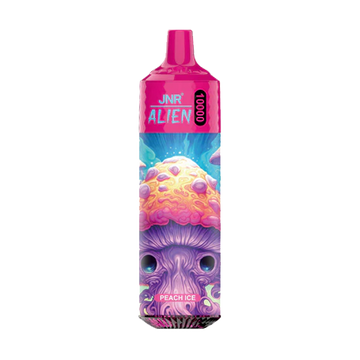Custom Insulation Strategies Tailored for Fresno Property Owners
Custom insulation strategies specifically for Fresno properties demand a careful balance of material choice, installation technique, and an understanding of the local climate. Fresno’s hot, dry summers and mild winters create unique challenges and opportunities for insulation. The most effective approach focuses on minimizing heat gain during long summer months while managing moisture and air quality issues. Choosing the right insulation material with appropriate R-values and applying it where it makes the most difference ensures optimal energy efficiency and indoor comfort throughout the year.
Spray foam insulation stands out as a preferred method due to its air-sealing capabilities and moisture resistance. Experience with Fresno properties shows that open cell and closed cell spray foam meet different needs: open cell offers sound dampening and breathability for interiors, while closed cell delivers stronger thermal resistance and moisture barriers for crawl spaces, attics, and exterior walls. This guide delves into the technical, climatic, and practical considerations essential to developing custom insulation solutions tailored for Fresno property owners.
Understanding Fresno’s Climate and Its Impact on Insulation
Fresno sits in California’s Central Valley, characterized by Mediterranean-like climate conditions with intensely hot summers, temperatures often soaring above 95°F, and mild, relatively dry winters. These conditions significantly influence insulation strategy because the primary goal is to reduce heat infiltration during the scorching summer months. The long, intense heat spells can increase cooling demands, and improper insulation can lead to high energy bills and uncomfortable indoor environments.
Humidity levels fluctuate, sometimes rising overnight in summer, especially in basements and crawl spaces. This creates a risk of condensation and mold growth if insulation and air sealing are not done properly. Additionally, Fresno’s dusty environment means that insulation must also help minimize infiltration of airborne particulates, enhancing indoor air quality.
The key challenge is designing a system that reduces heat transfer, limits air leakage, and manages moisture without compromising the structural integrity of the home or building. Spray foam insulation excels in this role due to its expanding properties that fill gaps and crevices, sealing the building envelope tightly.
Spray Foam Types and Their Applications in Fresno
Two main types of spray foam insulation exist, each with distinctive properties suited to particular Fresno property needs: open cell and closed cell.
Open-Cell Spray Foam
Open-cell spray foam is light and flexible, expanding to fill gaps but allowing some air permeability. It has a moderate R-value, typically between 3.6 and 3.8 per inch, making it effective as an interior insulation option. Open-cell foam works well in areas where some breathability is needed, such as interior walls or attics that require some vapor exchange to avoid trapping moisture.
In Fresno, open-cell foam is often chosen for interior walls to provide soundproofing and moderate thermal resistance. However, it’s less effective against moisture intrusion and not recommended for areas prone to dampness.
Closed-Cell Spray Foam
Closed-cell spray foam insulation is much denser, with an R-value ranging from 6.0 to 7.0 per inch, making it one of the most effective insulators available. It acts as both an air barrier and a moisture barrier, which is critical for Fresno’s crawl spaces, basements, and exterior walls where humidity can accumulate.
Its rigidity adds structural strength, which is an added benefit in seismic zones like Fresno’s. The moisture resistance of closed cell foam prevents mold and mildew growth, common problems in humid or poorly ventilated spaces.
| Insulation Type | Density (lb/ft³) | R-Value per Inch | Moisture Resistance | Best Use in Fresno | Relative Cost |
|---|---|---|---|---|---|
| Open Cell Spray Foam | 0.4 – 0.5 | 3.6 – 3.8 | Low | Interior walls, attics with ventilation | Moderate |
| Closed Cell Spray Foam | 1.7 – 2.0 | 6.0 – 7.0 | High | Crawl spaces, exterior walls, attics | Higher |

Technical Details and Why They Matter
Understanding the technical specifications of spray foam insulation helps in choosing the right solution for specific Fresno properties.
- Compressive Strength: Closed cell foam exhibits compressive strength between 40 to 60 psi, supporting structural integrity in addition to insulation. Open cell foam, with 5 to 10 psi, is less rigid but sufficient for interior uses.
- Thermal Conductivity: Closed cell has a thermal conductivity as low as 0.020 W/m·K, making it a superior insulator compared to open cell foam, which ranges from 0.035 to 0.040 W/m·K.
- Vapor Permeance: Open cell foam allows 10 to 20 perms, meaning it is vapor permeable and less likely to trap moisture but also less protective against dampness. Closed cell foam’s vapor permeance is below 1 perm, acting effectively as a vapor barrier.
- Air Leakage Rate: Closed cell spray foam minimizes air leakage better than open cell due to its density and sealing ability, with air leakage rates near 0.05 ACH at 75 Pascals compared to 0.25 ACH for open cell.
These specifications translate into real-world performance: closed cell foam not only insulates but also protects Fresno homes from moisture damage, while open cell foam offers comfort and sound control in less demanding spaces.
According to the U.S. Department of Energy, buildings that employ spray foam insulation can reduce their cooling energy use by up to 15% in hot climates like Fresno, proving the financial and environmental value of tailored insulation strategies.
Installation and Regional Application Best Practices
Spray foam installation is a skilled trade requiring professional expertise to ensure even coverage and proper curing. For Fresno homes, several best practices emerge from years of field experience:
- Attics: Attic insulation must address intense heat buildup. Closed cell foam applied directly to the underside of the roof deck blocks heat transfer and stops air infiltration. This reduces strain on air conditioning systems.
- Crawl Spaces: These areas often face moisture problems, so closed cell foam is recommended to seal foundation walls and floors, preventing humidity from entering living spaces.
- Walls: Open cell foam suits interior wall cavities for sound control and insulation, but exterior walls exposed to weather benefit from closed cell foam’s moisture resistance.
- Repairs and Retrofits: Spray foam repairs are effective in fixing leaks or gaps in existing insulation, preventing further energy loss.
A critical experience-based tip is to pair spray foam with proper ventilation strategies. Even though closed cell foam acts as a vapor barrier, Fresno’s seasonal humidity requires mechanical ventilation systems to maintain indoor air quality and avoid trapped moisture.
What Fresno Property Owners Should Consider Before Choosing Insulation
Before committing to an insulation plan, several factors should influence the decision:
- Building Age and Condition: Older homes may have uneven cavities or existing materials that affect foam adhesion and expansion.
- Energy Efficiency Goals: Whether aiming for net-zero energy usage or simply lowering bills influences foam thickness and type.
- Budget vs. Long-Term Value: Closed cell foam is costlier upfront but offers longer-term savings and fewer maintenance issues.
- Climate Variability: Consider the occasional Fresno humidity spikes and the need for moisture barriers.
- Local Code Compliance: Fresno’s building codes mandate certain minimum R-values and vapor barrier requirements.
- Environmental Impact: Select spray foams with low Global Warming Potential (GWP) to reduce environmental footprint.
These considerations help avoid costly mistakes and ensure insulation meets both immediate and future needs.
Services Offered for Fresno Insulation Needs
The following service areas address the wide range of insulation needs encountered in Fresno properties:
- Residential Spray Foam Insulation: Customized for homes, focusing on comfort, energy savings, and moisture control.
- Commercial Spray Foam Insulation: Provides durable insulation for commercial buildings that require both energy efficiency and fire resistance.
- Open Cell Spray Foam Insulation: Best for interior applications where soundproofing and breathability are priorities.
- Closed Cell Spray Foam Insulation: Ideal for areas requiring moisture barriers, structural reinforcement, and high R-value.
- Attic Insulation: Specialized application techniques reduce attic heat gain significantly.
- Spray Foam Repairs: Efficient remediation of leaks and deteriorated insulation sections to restore thermal performance.
- Crawl Space Spray Foam Insulation: Seals and protects foundational spaces from moisture and pests.
Common Questions Fresno Property Owners Ask
What is the ideal spray foam thickness for Fresno homes? For most Fresno homes, 3-4 inches of closed cell foam meets energy code and provides excellent thermal resistance, especially in attics and crawl spaces.
Can spray foam insulation improve indoor air quality? Yes. By sealing air leaks and preventing dust infiltration, spray foam helps maintain cleaner indoor air, which is crucial in Fresno’s dusty environment.
Is spray foam safe for older homes with existing insulation? When installed by experienced professionals, spray foam can be safely applied over or in place of older materials, but it requires a thorough inspection to avoid moisture traps.
How does spray foam compare to fiberglass or cellulose in Fresno? Spray foam offers higher R-values, better air sealing, and moisture control than traditional fiberglass or cellulose, making it a better long-term investment in Fresno’s climate.
FAQ About Custom Insulation Strategies
How long does spray foam insulation last in Fresno conditions? Properly installed spray foam can last over 20 years, retaining performance without significant degradation.
Is spray foam insulation eco-friendly? Modern spray foams increasingly use blowing agents with low Global Warming Potential, making them more environmentally responsible than older formulas.
What maintenance does spray foam require? Generally, spray foam needs minimal maintenance but should be inspected periodically for damage or moisture intrusion.
Can spray foam insulation help reduce noise? Open cell spray foam significantly reduces sound transmission, making it effective in reducing exterior noise.
Are there health risks associated with spray foam insulation? Proper curing eliminates most risks; professional installation and ventilation during application minimize exposure to harmful chemicals.

Ready to Achieve Superior Comfort and Efficiency?
Applying a custom spray foam insulation strategy tailored to Fresno’s climate and property specifics maximizes energy efficiency, enhances indoor comfort, and protects structures from moisture damage. Prioritize professional assessments to determine the most effective materials and installation methods.
Contact Supreme Spray Foam – Fresno at (559) 545-0800 or info@supremesprayfoamfresno.com to schedule a consultation and ensure your property is optimally insulated for Fresno’s unique climate challenges.
Reviewer: Emma Robinson contributed her knowledge from 8 years working with spray foam industry. Her review helped shape this content with ideas grounded in what contractors and homeowners actually value.













